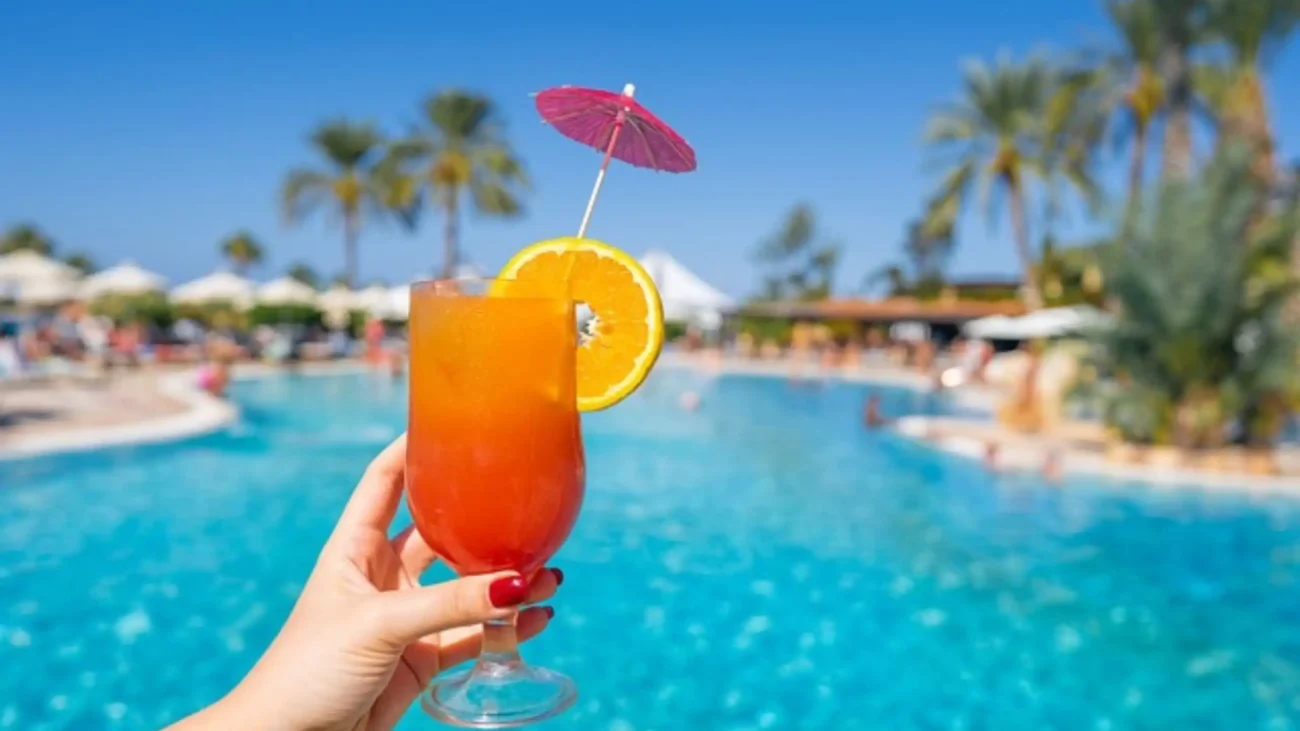Public pools are a beloved resource for communities across the world, providing access to swimming facilities for people of all ages and backgrounds. Whether you are looking to stay fit, cool off on a hot day, or enjoy quality time with family and friends, public pools serve as a hub for various activities. In this comprehensive guide, we explore the many benefits of public pools, the features they typically offer, and the best practices for making the most of your visit.
Why Public Pools Are a Valuable Resource
Public pools are more than just places to swim; they offer numerous health, social, and economic benefits to communities.
Promoting Physical Health
Swimming is a full-body workout that provides a wealth of health benefits. Public pools offer an affordable and accessible way for individuals to:
- Improve cardiovascular health: Swimming increases heart rate, improving circulation and reducing the risk of heart disease.
- Build muscle strength: The resistance of water helps tone muscles without straining joints, making swimming an ideal workout for all ages and fitness levels.
- Maintain a healthy weight: Swimming is an excellent calorie-burning exercise that helps with weight management and fat reduction.
- Enhance flexibility and coordination: The dynamic nature of swimming helps improve joint mobility and overall body coordination. Ranks Focus
Offering Social and Recreational Opportunities
Public pools foster social interaction, allowing families, friends, and neighbors to come together for recreational activities. Here are some of the social benefits:
- Family fun: Public pools are designed to accommodate all ages, providing shallow areas, slides, and play features for children and family-friendly spaces for bonding.
- Community-building: Swimming pools act as gathering spots where people from different walks of life can meet, engage in social activities, and form connections.
- Organized events: Many public pools host community events such as swim meets, water aerobics classes, and fitness challenges, further promoting a sense of togetherness.
Supporting Mental Health and Well-Being
Spending time in the water offers numerous psychological benefits:
- Stress relief: The soothing effects of water can help reduce anxiety, improve mood, and enhance relaxation.
- Increased mental clarity: Swimming and water-based activities can serve as a meditative escape, helping clear the mind and promote mindfulness.
- Confidence-building: Achieving swimming goals, whether learning to swim or completing a challenging lap, fosters a sense of accomplishment and boosts self-esteem.

Key Features of Public Pools
While the specifics of each pool may vary, there are common features that make public pools functional and enjoyable for all types of visitors.
Lap Pools
Designed for serious swimmers, lap pools are typically longer and narrower than recreational pools. These pools allow individuals to swim uninterrupted, making them ideal for fitness routines and training sessions.
Shallow Recreational Pools
Public pools often feature shallow areas for families with children or those who want to relax and socialize in the water. These pools usually have slides, fountains, and splash zones, making them perfect for young swimmers.
Diving Areas
Many public pools have dedicated diving sections with platforms or springboards for diving enthusiasts. These areas are often separated from the main swimming areas to ensure safety.
Therapy Pools
Designed for rehabilitation or therapy, these pools offer warmer water that soothes aching muscles and joints. Therapy pools are commonly used by people recovering from injuries or undergoing physical therapy.
Locker Rooms and Showers
Public pools typically offer locker rooms with showers, which are essential for ensuring hygiene before and after swimming. Some facilities also provide changing rooms, restrooms, and seating areas for visitors.
Best Practices for Enjoying Public Pools
While public pools are excellent for relaxation and fitness, it’s important to follow certain guidelines to ensure a safe and enjoyable experience for everyone.
Follow Pool Rules
Each pool has its own set of rules designed to maintain safety and ensure everyone has a good time. Common rules include:
- No running or diving in shallow areas.
- Proper swimwear must be worn at all times.
- No food or drink in the pool area.
- Children must be supervised by adults.
Practice Good Hygiene
Maintaining cleanliness at the pool is essential to prevent the spread of germs and bacteria. Always remember to:
- Shower before entering the pool to wash off dirt, oils, and sweat.
- Avoid swimming if you are sick or have open wounds.
- Use the restroom before entering the pool to help maintain water quality.

Be Courteous to Others
When using a public pool, it’s important to be mindful of other swimmers. Here are some tips for pool etiquette:
- Be mindful of lane space: If you’re swimming in a lap pool, always swim in your designated lane and follow the flow of traffic.
- Keep noise levels down: Respect the atmosphere by keeping conversations at a reasonable volume, especially in quiet areas.
- Share pool space: Be considerate of others when the pool is crowded, and allow ample space for everyone to enjoy their swim.
Stay Safe
Safety should always be a top priority at public pools. Be sure to:
- Swim within your abilities and avoid pushing yourself too hard.
- Always keep an eye on children and ensure they are within arm’s reach at all times.
- Stay hydrated, particularly during outdoor swimming sessions.
How Public Pools Benefit the Community
Public pools have far-reaching impacts on the community beyond individual health benefits. They play a critical role in:
- Promoting water safety: Many public pools offer swimming lessons and water safety courses that teach essential skills for survival and drowning prevention.
- Supporting youth development: By providing swim lessons and after-school programs, public pools help children develop important life skills such as discipline, teamwork, and perseverance . Solars Gadget
- Economic value: Public pools create job opportunities for lifeguards, swim instructors, and maintenance personnel, contributing to the local economy.
Conclusion
Public pools are more than just swimming facilities; they are vibrant spaces that promote health, foster community engagement, and provide recreational opportunities for people of all ages. Whether you’re looking to improve your fitness, learn a new skill, or simply enjoy time with loved ones, public pools are an invaluable resource. By following proper etiquette and safety guidelines, you can make the most of your visit and experience all the benefits these community hubs have to offer.
(FAQs) About Public Pools
What is a public pool?
A public pool is a swimming facility that is open to the general public. These pools are typically operated by local governments, municipalities, or private organizations and are available for recreational swimming, fitness activities, and lessons.
What are the benefits of swimming in a public pool?
Swimming in a public pool offers several benefits:
- Physical health: It helps improve cardiovascular health, builds muscle strength, and boosts flexibility.
- Mental well-being: Swimming can relieve stress, reduce anxiety, and promote relaxation.
- Social engagement: Public pools provide an opportunity to interact with others and foster community connections.
Are public pools safe?
Yes, public pools are generally safe, provided they are well-maintained and operated according to health and safety standards. Pool facilities regularly test water quality, employ lifeguards, and enforce safety regulations to prevent accidents.
What should I bring to a public pool?
When visiting a public pool, make sure to bring:
- Swimwear: A proper swimsuit or trunks.
- Towel: For drying off after swimming.
- Flip-flops or water shoes: To avoid slipping and walking barefoot in the changing areas.
- Sunscreen (if it’s an outdoor pool): To protect your skin from UV rays.
- Water bottle: To stay hydrated during your swim.
What are the rules for using a public pool?
Common rules include:
- Showering before entering the pool.
- Wearing appropriate swimwear.
- No diving in shallow water.
- No food or drink in the pool area.
- No running or rough play.
- Children must be supervised by an adult at all times.
Are public pools accessible for people with disabilities?
Many public pools are designed to be accessible to individuals with disabilities. Features may include wheelchair ramps, pool lifts, and specially designed shallow areas to accommodate those with mobility challenges.
Can I learn how to swim at a public pool?
Yes, most public pools offer swimming lessons for all ages and skill levels. These lessons often include beginner to advanced techniques, as well as water safety courses.
What facilities are available at public pools?
Public pools often include:
- Lap pools: For fitness swimming.
- Shallow pools: For children and beginners.
- Diving areas: With platforms or springboards.
- Water slides or splash zones: For added fun.
- Therapy pools: For rehabilitation and relaxation.
- Locker rooms and showers: For changing and freshening up.
Are public pools open year-round?
Indoor public pools are typically open year-round, while outdoor pools are often seasonal and operate during the warmer months. It’s best to check with your local pool for their hours of operation.
How is water quality maintained in public pools?
Public pools use a combination of filtration systems and disinfectants, such as chlorine, to keep the water clean and safe. Regular tests of the water’s pH and chlorine levels are conducted to ensure hygiene standards are met. Rank post
Can I host an event at a public pool?
Yes, many public pools offer rental options for private events, including birthday parties, corporate outings, and group swimming sessions. Contact the pool facility for booking details and availability.
How can I stay safe while using a public pool?
To ensure safety:
- Always swim within your abilities.
- Follow pool rules and lifeguard instructions.
- Keep a close eye on children at all times.
- Avoid swimming alone, especially in deeper water.
- Stay hydrated, particularly in outdoor pools.
